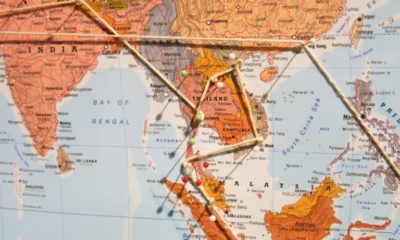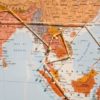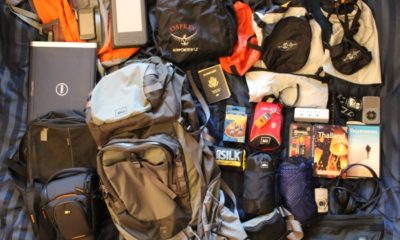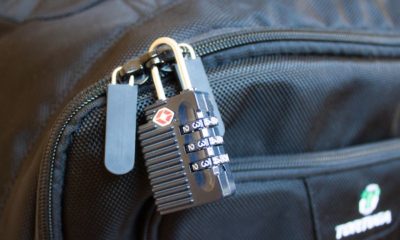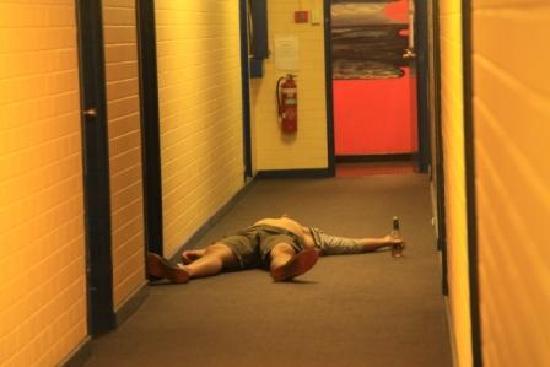How To Save Money For Travelling: 10 Steps To Fund Your Trip
By following the steps below you can easily save enough money to go travelling:
By
Many people say that they would love to go travelling if only they could afford it and consequently never end up going.
However in reality it is not money that people lack, its the lack of will or desire to go travelling.
By following the steps below you can easily save enough money to go travelling:
Step 1 – Set A Target Amount And Date To Reach It
Firstly you need to set yourself a target of exactly how much money you are going to need.
Defining an amount will help provide you with a focus and a goal rather than just a pipe dream.
Read more here about Budget Planning and here for information on How Much It Costs To Travel In Certain Countries.
You also need to set a target date to reach that amount which again will help provide focus and motivation. Perhaps you want to visit a festival or arrive in a country for a particular season? You should then aim to reach your target amount with ample time before that festival or season starts.
Step 2 – Remind Yourself Of How Badly You Want To Go
Inspiring yourself is a great way to reach your target.
Start thinking of where you want to go and what you want to do. You could even change your desktop wallpaper or put up photos around your home of places you want visit.
Visit our Destinations page for inspiration.
Subscribe to travel blogs, twitter accounts and alike to keep travelling and your goal in your mind.
If you hate your job or current routine use that as motivation to save up and change your lifestyle.
Remember no matter how tough you find saving money, travelling is totally worth it!
Step 3 – Earn
Obviously you need an income stream to start saving for travelling.
If you are a student you may want to think about getting a part time job if you don’t already.
Taking a gap year before or after University is a popular method. Save up by working for ‘x’ amount of months in a temporary role and then go travelling for the remaining amount of time.
If need be work extra hours or get a second job. Ask your boss for a pay increase or help out your neighbours or parents for extra cash. If you find it tough remind yourself of step 2.
Step 4 – Sell
If your working revenue is not enough then maybe start selling some things to help fund your trip.
Is there anything that you don’t need any more or that you are not going to need whilst you are travelling?
The prime example is your car – you could easily earn all the money you need to go travelling by selling your car.
Get on Ebay and start selling your junk or things you don’t use any more – old student books, jewellery and video games are good examples.
Selling 20 things at £10 ($15) each is a nice £200 ($300) in your travel pot, which could easily fund at least two weeks of travelling in a country as cheap as Thailand.
Step 5 – Live With Your Parents
It can be a difficult decision for someone who has grown accustom to independence or past a certain age, but living with your parents is by far the best way to save money – just think of the rent savings.
Bear in mind it should only be for a short period of time as you will be able to save money a great deal quicker. Again remember step two, as well as trying to embrace living at home – you probably won’t have to do any chores and may get meals cooked for you, sometimes even for free. Parents tend to spoil their children when they come back home.
Step 6 – Give Up Bad Habits
You may be able to give them all up, but even cutting back on just one by a little bit will help.
Outline your bad habits and note how much each costs individually. Here is an example:
Pack Of 20 Cigarettes = £8 ($12)
Big Night Out = £40 ($65) minimum
Trip To The Pub = £12 ($20) average
Meal Out = £10 ($17)
Lunch Out = £6 ($11)
Coffee Out = £3 ($5)
Bet = £5 ($10)
Then calculate how much those habits will cost you before you plan to leave. For example:
Let’s say you plan to go travelling in 12 weeks time. You smoke 10 a day (£336) and go out for a big one every weekend (£480). You go to the pub every Wednesday (£144) and place a couple of bets on the football (£120). You enjoy a coffee from Starbucks every morning before work (£180); eat lunch out every workday (£360) and a meal out every Friday (£120).
In this example giving up all of these bad habits could save you £1,740 ($2,900) before you go travelling!
Step 7 – Cut Expenditures
There are many things that come out of your bank account that you don’t even notice. Unless you really need or enjoy it you may consider cancelling some of these direct debits, after all you are going to need to cancel it anyway when you are travelling. Examples are satellite TV, gym memberships or other subscriptions, you could also cut back on your phone contract.
What about trips to the beauty parlour, salon or hairdressers? Can you maybe increase the time between each visit?
You can save so much money on the running of your car by using it less or not at all. If you decide not to use it anymore, cancel your insurance and you should receive a proportion of your money back.
Think about any other things that you aren’t going to need whilst you are travelling and eliminate that expense in advance.
Step 8 – Save Wherever Possible
Think before spending every penny: “do I really need to buy this?”; “would I rather use this money for travelling?”; “can I afford to do this?”; “can I go without?”.
Shop around before buying anything and look out for promotions and discounts.
One thing that frustrates me is branding and how people waste so much money on it. Classic example is water. A bottle of Evian is 3 times the price of a supermarket own brand bottle of water, and yet they are exactly the same product – its natural mineral water – don’t say you can taste the difference because there isn’t one. Why stop there, admittedly you may be able to taste the difference between tap water and bottled water, but is it really worth the extra price?
Try to buy own brand products, the majority are equally as good as the leading brand.
Step 9 – Be Tight And Only Buy Necessities
You friends or partner may not be too happy with you for a bit, but being thrifty can help save you a lot of money. You should only buy items you need, not luxury items and treats.
Here are just a few tips:
Don’t offer to buy people things.
Walk rather than drive.
Don’t buy something just because everybody else is.
Say ‘no’ to going out if is going to costs too much.
Watch TV and DVD’s instead of going to the cinema.
Avoid clothes shopping.
Buy cheaper foods.
If all else fails…
Step 10 – Go On A Working Holiday
If you are struggling to reach your target consider a working holiday. This way you can lower your target and only need to save up enough for a flight and the initial start up costs (see here), then you can work and travel at the same time.
All of the following countries offer some form of working holiday visa:
Argentina, Austria, Australia, Bangladesh, Belgium, Brazil, Canada, Chile, China, Costa Rica, Croatia, Cyprus, Czech Republic, Denmark, Estonia, Finland, France, Germany, Greece, Hong Kong, Hungary, Indonesia, Iran, Ireland, Israel, Italy, Japan, Latvia, Lithuania, Malaysia, Malta, Mexico, Monaco, Netherlands, New Zealand, Norway, Peru, Philippines, Poland, Portugal, Russia, Singapore, Slovakia, Slovenia, South Africa, South Korea, Spain, Sweden, Switzerland, Taiwan, Thailand, Turkey, Ukraine, United Kingdom, United States, Uruguay, Vietnam.
Obviously countries like Australia pay much higher wages, but remember it is relative to the living costs. This means if you get a job quick you will have hit the jackpot, but if you can’t find one then you could be in deep financial trouble, therefore try to look for jobs before going.
You can read more here about Working Holidays in Australia
I'm Craig, creator of Backpacker Advice. I love discussing my travels. My goal is to inspire people to just go and see the world and live your life, along with giving practical advice and tips for backpackers.





